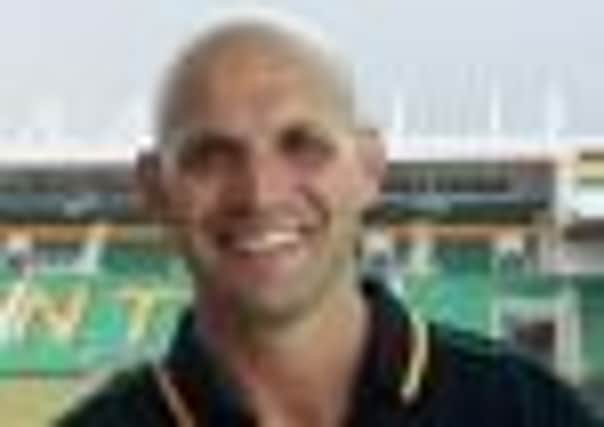Would Mallinder be certain to accept if asked to lead England?


The appointment of Martin Johnson was always a gamble.
Untried as a coach, it was a massive risk to stake all England’s hopes on him purely because of his enormous reputation as a player, a captain and a talisman.
His three-and-a-half years in the job were beset by problems and negative headlines.
Advertisement
Hide AdAdvertisement
Hide AdThe on-field indiscipline of his first autumn campaign and Six Nations in the 2008-09 season and the false dawns that led to inevitable disappointment culminated in his team’s dismal showing at the World Cup.
His players let him down in New Zealand.
Yorkshireman Mike Tindall may be the high-profile fall guy, but James Haskell, Chris Ashton and Manu Tuilagi are among many who could and should have behaved better off the field.
Advertisement
Hide AdAdvertisement
Hide AdThe actions of his coaches did not help either with the ‘ballgate’ scandal.
Johnson had enough on his plate picking a side to try to win games in his first World Cup as team manager without having to reprimand players behind closed doors and defend their actions to the media every five minutes.
It is hardly surprising that he has had enough of it all, but after the shambles of New Zealand, could he have gone anywhere else? It would have been a long four years trying to put everything right.
More than five weeks have elapsed since Johnson and his squad headed home from New Zealand after being dumped out in the quarter-finals at the hands of a similarly disjointed France side.
Advertisement
Hide AdAdvertisement
Hide AdJohnson was crestfallen yesterday – almost heartbroken – as he spoke eloquently and without excuses in the same room at Twickenham where his victorious 2003 World Cup boss Sir Clive Woodward quit his England role seven years ago.
You could almost sense the proud leader wondering how it had all come to this after such a decorated career as a player.
He can stand alongside Bill Beaumont and Will Carling as one of the great on-field leaders of English, and British and Irish Lions, history.
He may have gone on to be a great coach in time had he not been fast-tracked into the top job at such a young age.
Advertisement
Hide AdAdvertisement
Hide AdIn hindsight, at 38, how could a relatively inexperienced man be expected to handle the demands of the biggest job in the country, with all the extra duties to attend to in the goldfish bowl of the England rugby team?
He was forever fighting fires at press conferences at home and abroad, with the pressure of leading a team from the highest-resourced union in the game always likely to take its toll.
It begs the question whether Jim Mallinder, the Halifax-born director of rugby at Northampton Saints, would want the job.
Of all the home-grown candidates, the former Old Crossleyans and Roundhay player has the best credentials.
Advertisement
Hide AdAdvertisement
Hide AdBut if we are to level age at Johnson as a reason for his shortcomings in the top job, then at 45 can Mallinder still be regarded as inexperienced?
And having built something so promising at Northampton, would he want to turn his back on an unfinished job?
Last season’s Heineken Cup final might be the prelude to a new dynasty in club rugby, away from the intense spotlight of the England job.
Whoever the next man is, that will only get brighter with the next World Cup in four years being staged on home soil.
Advertisement
Hide AdAdvertisement
Hide AdNothing short of being crowned world champions will suffice, particularly in a tournament that is costing the home union somewhere in the region of £80m.
The stakes are high and the RFU must make sure the appointment of their next manager is a safe bet not a gamble.
For now Johnson, like Tindall last week, is the scapegoat, but the question has to be is it not the RFU who have got it so spectacularly wrong?
The equation that they hoped would produced the right answer ultimately proved unfathomable.
Advertisement
Hide AdAdvertisement
Hide AdMartyn Thomas, the man who so desperately wanted Johnson to succeed Brian Ashton in 2008, will leave the RFU next month.
Johnson’s coaching support staff will disintegrate in the continued fallout from the World Cup, yet should not Rob Andrew’s position within the structure be called into account?
Johnson’s resignation is honourable, if inevitable. But should it also send a message to Andrew that he, too, has gone beyond the point of no return?
Not that there was any sign of contrition as he sat alongside Johnson yesterday. Andrew was defiant in his response to questions, specifically about the RFU’s structure.
“No, I’m absolutely not considering resigning,” said Andrew, when asked about his future just minutes into the press conference.
Johnson has. He was the wrong man at the wrong time for England.